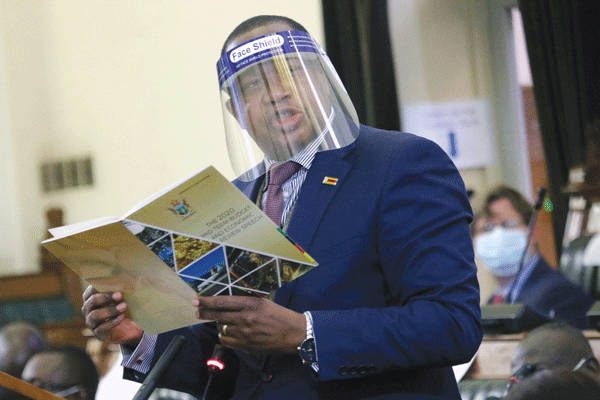
BY SHAME MAKOSHORI
A crisis is brewing in Zimbabwe’s retail sector after Finance minister Mthuli Ncube amplified a desperate situation by turning down pleas to hike tax-free thresholds by wide margins in his midterm policy review last Thursday, to stimulate demand.
Ncube stuck to a $10 000 tax-free threshold announced in November last year, saying his current policies were working.
According to the Consumer Council of Zimbabwe, an average family of six Zimbabweans requires $40 682 for basic commodities to see them through a month.
Ahead of last week’s policy review, economists said to avoid a fresh wave of bankruptcies, Ncube had to lift tax-free thresholds to $50 000 per month.
This would inject fresh liquidity of up to $100 billion per year into the pockets of 2,74 million still employed Zimbabweans.
But this would also mean the under-fire minister would struggle to raise enough revenues to fund state operations and ground government business.
While acknowledging the hurdles facing retailers and wholesalers, Ncube said he was optimistic that these sectors would rebound in 2021.
- Chamisa under fire over US$120K donation
- Mavhunga puts DeMbare into Chibuku quarterfinals
- Pension funds bet on Cabora Bassa oilfields
- Councils defy govt fire tender directive
Keep Reading
“Retail trade was severely affected by the national lockdown measures imposed during the first quarter, Covid-19 mitigation costs and disruption of global supply chains,” he said.
“Even though retail outlets were open during the lockdown period, demand was weak due to closure of other sectors of the economy, as well as low disposable incomes.
“In the outlook, the retail sector stands to benefit from ongoing reforms which are strengthening the economy, overall invigoration of domestic production through strengthening of domestic value chains, tax reforms which cushion employees, as well as rolling out of various social protection schemes under the Covid-19 stimulus package.
“The retail and wholesale trade sector is, therefore, projected to grow by 5,1% in 2021.”
But economists said with billions being channelled to taxes instead of consumers’ pockets, the sector could wait a little longer before recovery.
“The next big crisis, after the carnage in sectors like tourism, will be seen in the retail sector,” said Tapiwa Sibanda, head of research at Trade Winds.
“To government’s advantage, it will not be your big chains like OK Zimbabwe Limited and Pick n’Pay that will be affected by wholesale closures.
“It is your small-scale and medium players that will struggle and close.
“There will not be embarrassment to government because very few will know about these closures.
“The review promised for November could be too far. By that time jobs would have been lost,” he said.
According to the Confederation of Zimbabwe Retailers (CZR), the sector’s problems have been compounded by worsening poverty levels in Zimbabwe.
CZR says at least 83% of Zimbabwe’s 14,5 million citizens had already hit hard times in the past year, mostly affected by company closures and wind-downs due to Covid-19 induced hard lockdowns.
This translates to about 12 million people now living below the poverty line.
CZR president Denford Mutashu warned in June that Ncube had only two options at his disposal.
He could choose to maintain the tax-free bracket at current levels of $10 000 per month and aggravate the pain, or widen it thereby increasing disposable incomes and consumer spending to drive up tax revenues.
“While annual inflation declined significantly from 838% in July 2020 to the last recorded 194% in April 2021, the rate is still very high and far from the 10% which is associated with ideal economic stability,” CZR said in its paper, which spelt out its expectations for the mid-term review.
“The national lockdown which was imposed in the first two months of the year severely constrained prospects for the first quarter.
“While most retail outlets were open for reduced trading hours, demand was weak due to the closure of other sectors of the economy during that time and reduced disposable incomes.
“Although the lockdown measures were relaxed at the beginning of March, we are not out of the woods yet as demand is still weak.”











